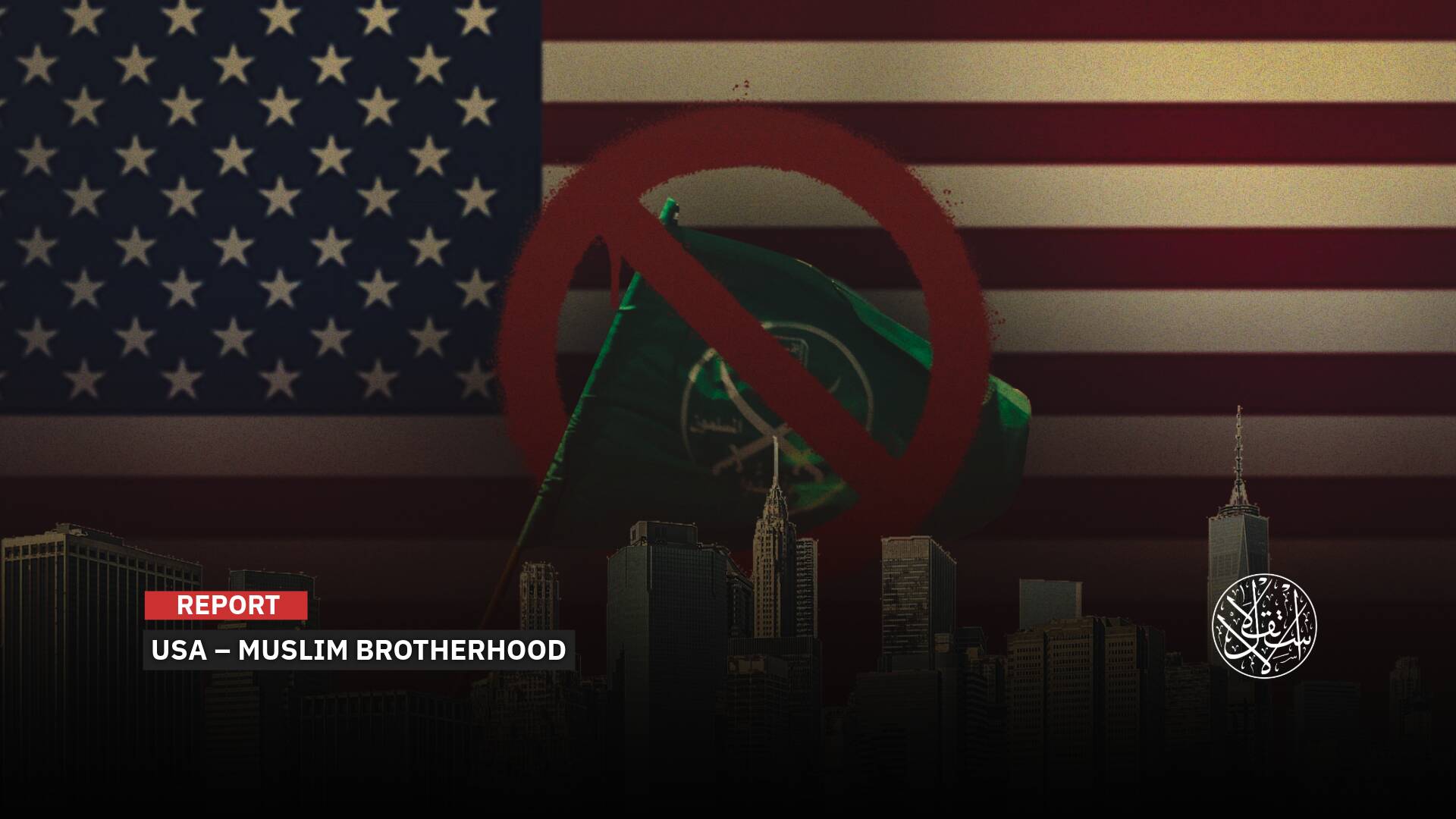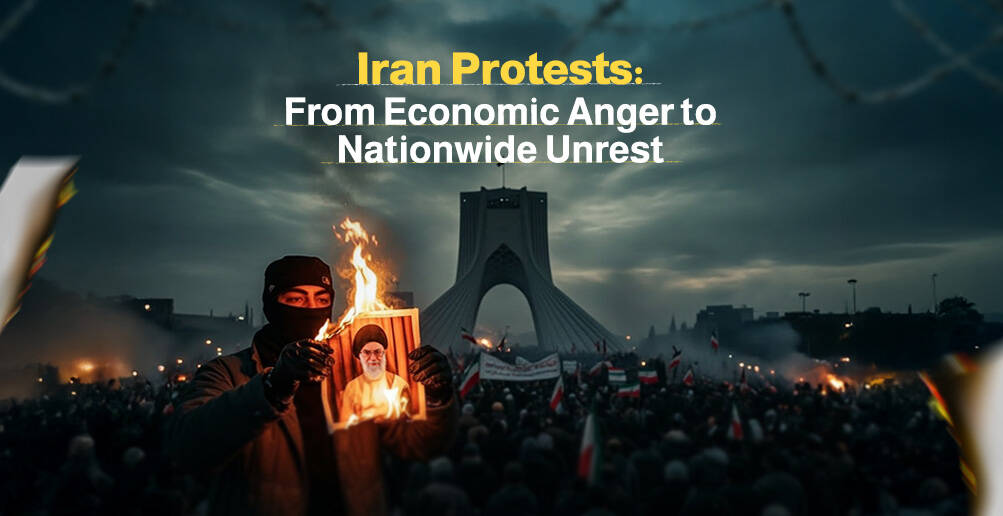Between Alleged Values and Loyalty to Zionism: Dutch Resignations Deepen Europe’s Crisis
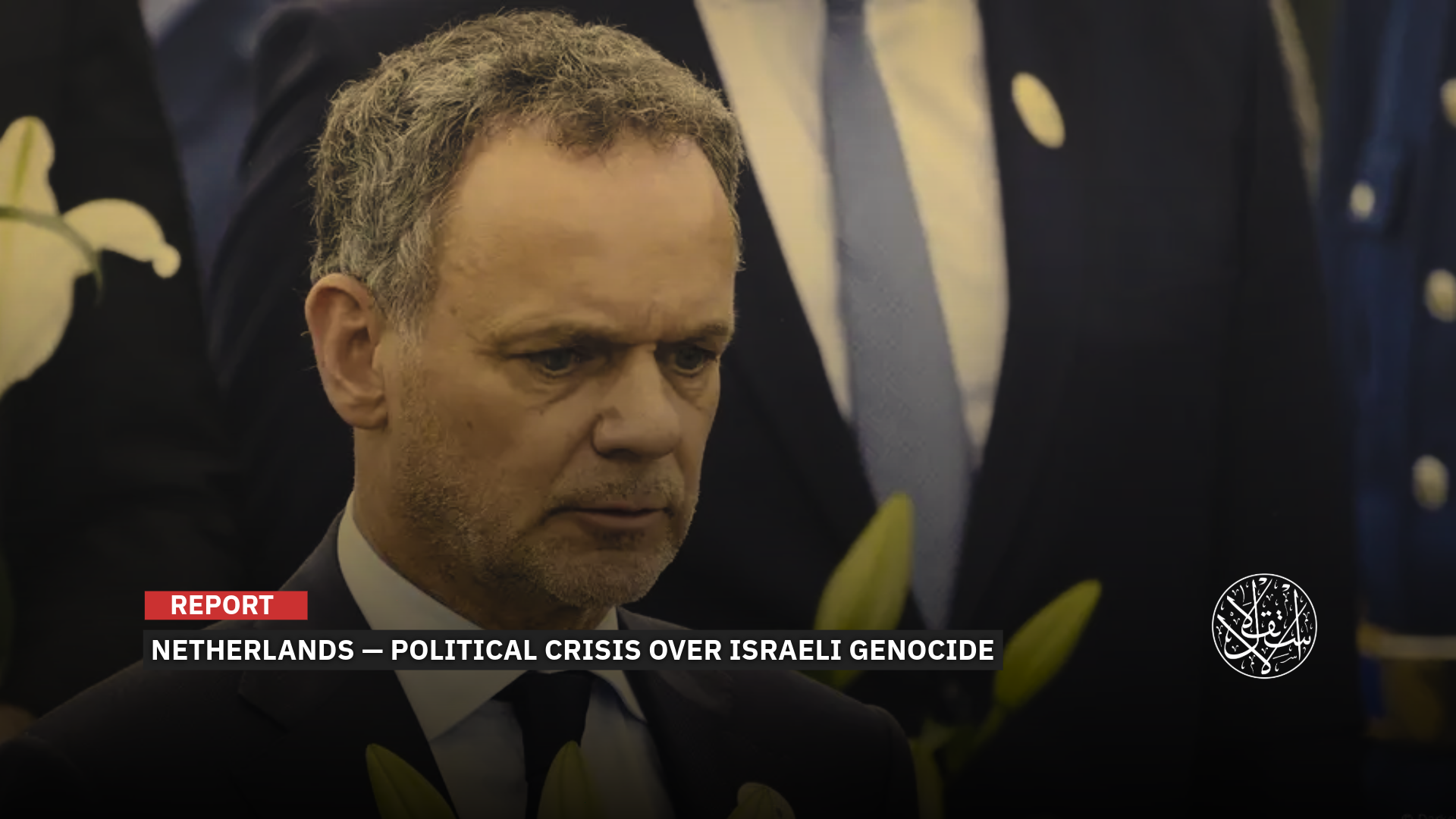
The Netherlands shifts from cautious critic to staunch opponent of “Israel.”
The Israeli genocide against the Palestinian people in Gaza has ceased to be a distant Middle Eastern issue, instead becoming a political earthquake at the heart of the European Union.
Images of massacres and the blockade have exposed deep divisions within European parties and governments, pitting leftist and popular movements calling for “Israel” to be held accountable against right-wing elites determined to maintain the alliance with Zionism.
From London to Madrid, from Berlin to Brussels, “Israel’s” genocide in Gaza has become a test of European foreign-policy principles, highlighting a widening gap between an outraged public and the ruling authorities.
The epicenter of the fallout has been in the Netherlands, where the debate over “Israel” escalated beyond political protests to a full-blown government crisis.
In The Hague, disagreements over how to handle the Israeli Occupation turned into a governing crisis that led to a string of resignations, including the foreign minister and several cabinet members from the New Social Contract party (NSC), who protested the government’s failure to take meaningful action against “Israel.”
Political Earthquake
The crisis began on August 22, 2025, when Dutch Foreign Minister Caspar Veldkamp, a former ambassador to Tel Aviv and member of the New Social Contract, resigned, citing the government’s inability to act decisively despite the scale of the Israeli war crimes in Gaza.
Veldkamp’s resignation triggered a wave of departures within the party, including Social Affairs Minister and Deputy Prime Minister Eddy van Hijum, Interior Minister Judith Uitermark, Education Minister Eppo Bruins, and Health Minister Danielle Jansen, as well as several state ministers, among them State Minister for Foreign Trade Hanneke Boerma.
These developments underscored the depth of division within the ruling coalition over the Israeli Occupation, with van Hijum acknowledging that disagreements over the Israeli file were the direct cause of the resignations.
He said Veldkamp had continuously pushed for additional sanctions, while other government factions blocked every attempt.
NSC party leader Nicolien van Vroonhoven added that the party had repeatedly called for tougher measures against “Israel” and a stronger Dutch stance, but the government’s repeated disregard for these demands left them with no choice but to withdraw.

Veldkamp’s Efforts
Caspar Veldkamp’s name was already familiar to “Israel” long before he assumed the role of Dutch foreign minister. A seasoned diplomat and former ambassador to Tel Aviv, he was known for cultivating back-channel ties with the Israeli Occupation government.
When he took office, his first year suggested continuity with his predecessors’ approach: quiet diplomacy, behind-the-scenes engagement, and only limited public condemnations when aggression against Gaza intensified.
But as the Israeli war against civilians in Gaza reached unprecedented levels, Veldkamp’s stance shifted, and he became one of Europe’s most outspoken critics of Israeli policy, driven by images from the Strip and by political gridlock within the European Union.
Initially, he believed discreet engagement with “Israel” was the best path to results. Yet in November 2024, he publicly supported the International Criminal Court’s decision to issue arrest warrants for Israeli Prime Minister Benjamin Netanyahu and former War Minister Yoav Gallant.
He went further, asserting that the Netherlands would carry out the arrests if Netanyahu set foot on Dutch soil, a declaration that angered Tel Aviv and led to the cancellation of a planned official visit.
After “Israel” resumed bombing Gaza following its March 2025 ceasefire violation, Veldkamp’s positions hardened further. In April 2025, he summoned the Israeli ambassador to The Hague in protest over the killing of 15 Palestinian aid workers by Israeli Occupation forces, an unprecedented move in Dutch diplomacy.
By May 2025, he had called for a European debate on suspending the EU-“Israel” partnership agreement, arguing that the Israeli Occupation was violating international law and blocking humanitarian aid to Gaza.
Through Veldkamp’s trajectory, the Netherlands transformed from one of Europe’s most cautious critics of “Israel” into a firm, assertive opponent.
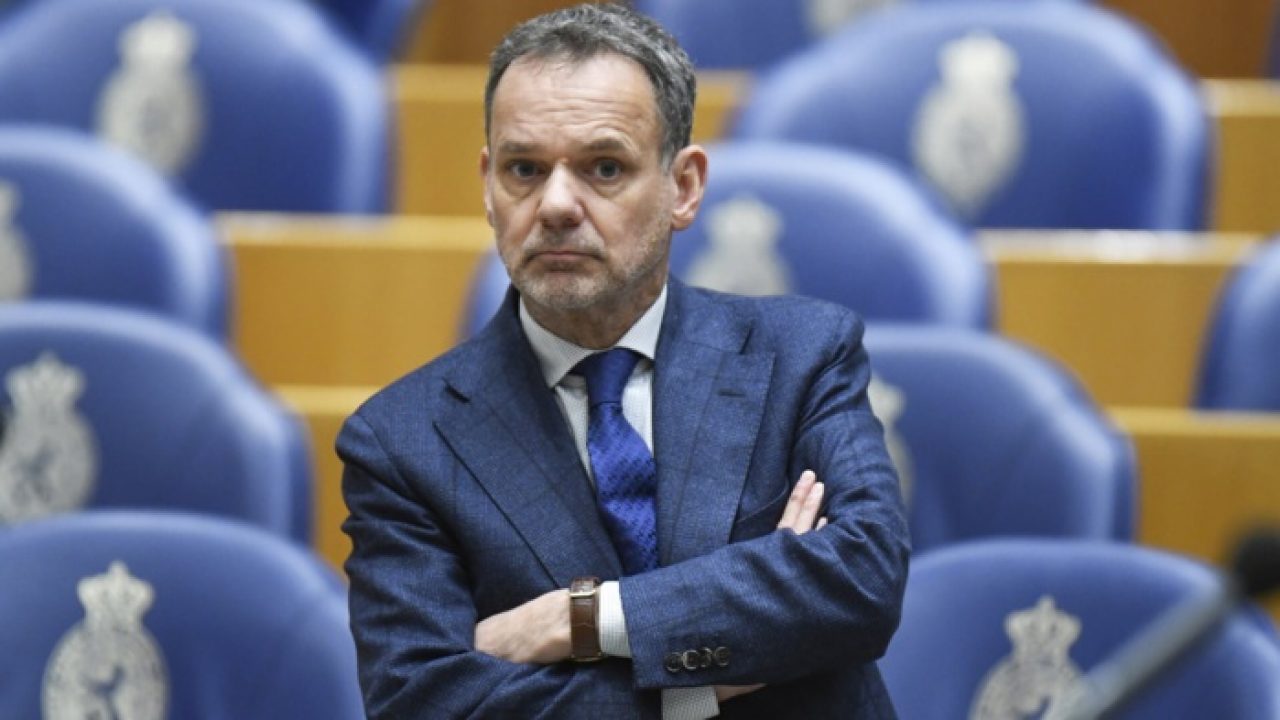
Historic Stances
The former Dutch foreign minister’s actions did not stop there. In July 2025, he made a historic decision to bar Israeli cabinet ministers Itamar Ben-Gvir and Bezalel Smotrich from entering the Netherlands, condemning their statements as incitement to violence and ethnic cleansing against Palestinians.
Weeks later, in early August 2025, he announced the cancellation of export permits for components of Israeli Occupation warships. Addressing parliament, he stated that the situation in Gaza made it practically impossible to grant weapons export licenses that could be used in attacks on the Strip or in the West Bank.
Veldkamp transformed from a quiet diplomat into one of the most confrontational European foreign ministers toward “Israel,” reaching a peak when he proposed a national ban on trade with illegal settlements after signing a joint statement with 20 European countries denouncing the settlements as “unacceptable and in violation of international law.”
Government Situation
Veldkamp’s influence extended beyond foreign policy. His recent resignation, along with those of his party ministers, triggered a political crisis in The Hague. Their departure left the caretaker government fragile, relying solely on the liberal People’s Party for Freedom and Democracy and the populist Farmer-Citizen Movement.
The latter accused the departing ministers of leaving the country without leadership, warning that their withdrawal during sensitive negotiations would further complicate the political situation. Prime Minister Mark Rutte expressed deep regret over the resignations but said he respected the decisions of the ministers, even as the Netherlands prepared for early elections at the end of October 2025, leaving the country in a dangerous political vacuum amid an escalating international crisis.
Gaza had thus shifted from a heated foreign policy issue to an internal political earthquake, exposing the government’s inability to take a firm stand on “Israel.” The pressure was compounded by public protests against the Israeli genocide in Gaza, which drew roughly 150,000 participants demanding sanctions against the Israeli Occupation to allow humanitarian aid to reach the territory that the United Nations officially declared in famine on August 22, 2025.
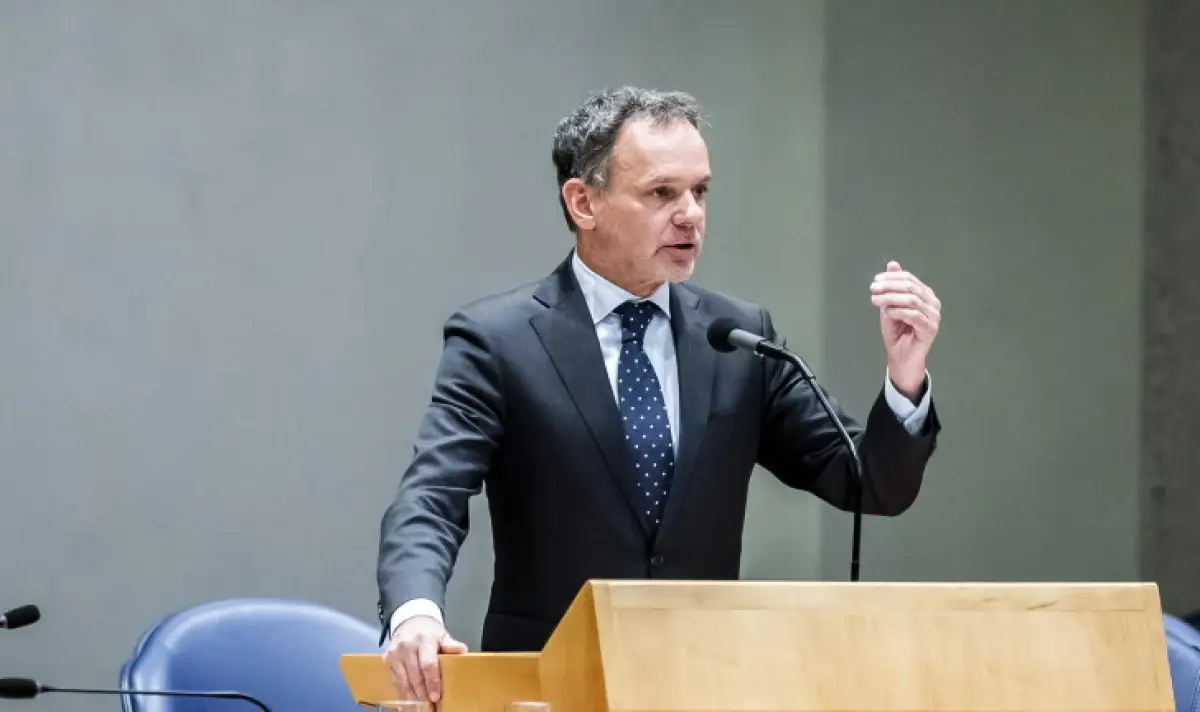
Europe Hardens Its Stance
From the Dutch crisis to the broader European stage, the images of famine and destruction coming from Gaza can no longer be ignored by European capitals.
The harrowing scenes of starving children and the rapid expansion of Israeli Occupation settlements have turned European public opinion into a powerful pressure force on governments, pushing them toward firmer stances on Tel Aviv out of fear of paying a steep domestic political price for continued silence or complicity.
The New York Times noted that in Berlin, on July 23, 2025, German Chancellor Friedrich Merz met with French President Emmanuel Macron at a historic palace overlooking Lake Tegel. Macron told Merz that he faced mounting pressure at home and that recognizing a Palestinian state had become an urgent issue to raise at the United Nations by the end of September.
Merz treated the proposal as a timeline that allowed Europeans to coordinate their next steps. But Macron acted without delay, announcing the following day that recognizing Palestine was France’s commitment to a just and lasting peace.
Days later, British Prime Minister Keir Starmer made a similar declaration in support of a Palestinian state, a move Western media described as a European break from the American line in the Middle East.
This shift did not result from careful coordination among European capitals, but from a frenetic diplomatic response driven by public outrage and the realization that the continent could no longer wait for U.S. leadership or rein in Benjamin Netanyahu’s momentum.
Gaza has thus become a dual test, a measure of Europe’s ability to craft an independent foreign policy and a test of how willing governments are to respond to their populations before losing voters’ trust and paying the price at the ballot box.
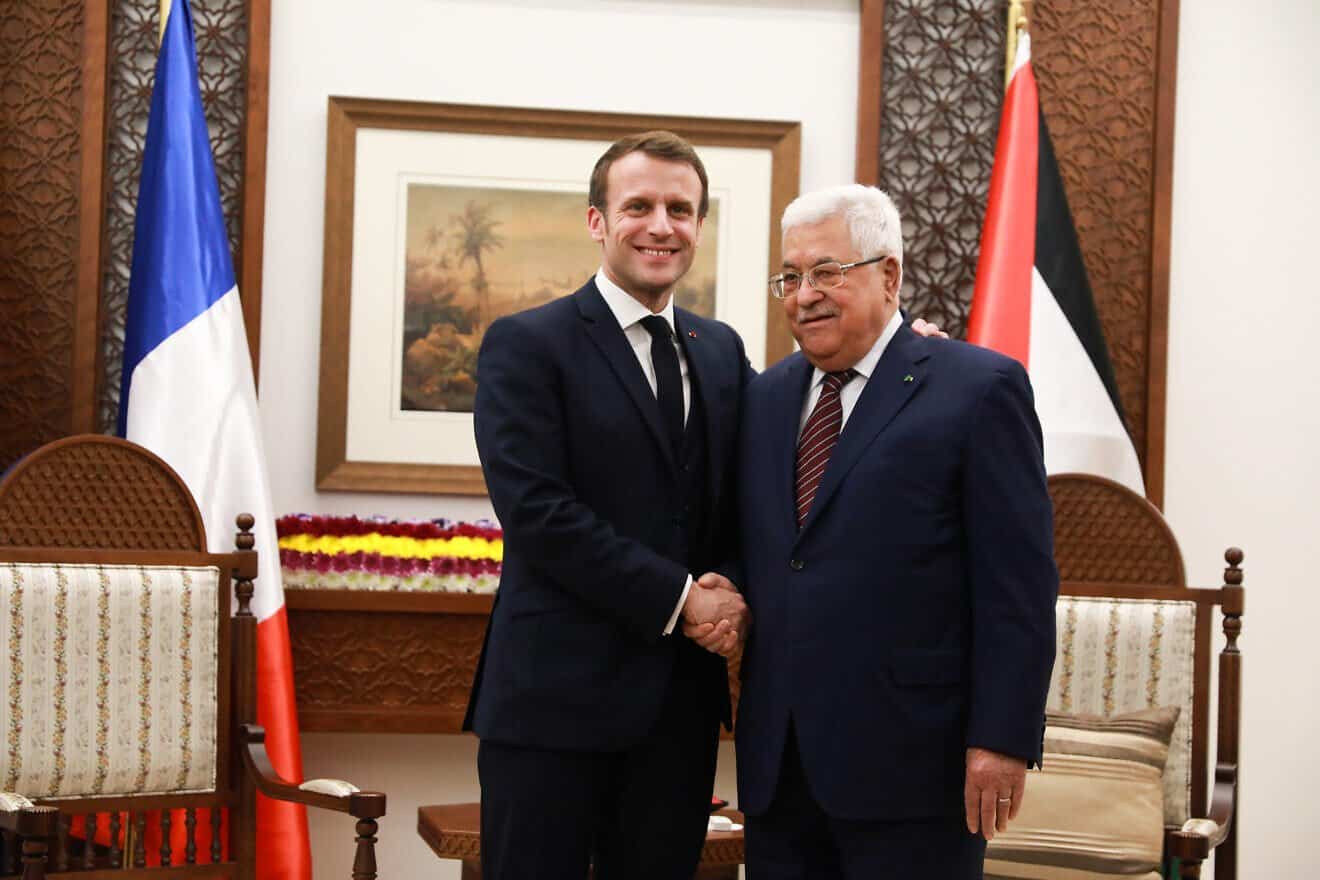
Slovenia Takes a Stand
Slovenia, the small Balkan state that joined the European Union in 2004, also surprised the continent with a bold move amid the EU’s faltering response to the Israeli Occupation war crimes.
On August 7, 2025, the government in Ljubljana announced a ban on imports of Israeli settlement products from the occupied West Bank and said it was considering further measures, including preventing the export of goods that could support the illegal settlements.
Foreign Minister Tanja Fajon called the decision “symbolic” in commercial terms but insisted it was a political and moral necessity in light of what is happening in Gaza and the West Bank. She added that Slovenia will not be part of the chain of countries that turn a blind eye to illegal construction, land seizure, and forced evictions.
The Slovenian government also emphasized that the move came after it became clear that the European Union was unable to act collectively, while the European Commission continued to propose measures such as a partial suspension of the EU-“Israel” partnership agreement without securing approval from member states.
At the same time, Ljubljana confirmed that it prohibits the export and import of weapons and military equipment to and from “Israel,” noting that it has not issued any licenses since October 2023 in response to the Israeli genocide in Gaza.
Slovenia’s action was not an isolated event but part of a growing wave of popular and political pressure across Europe to impose tangible sanctions on “Israel” and reshape its relations with the country.
Sources
- Dutch foreign minister resigns over Israel policy, rocking caretaker government
- Netherlands: Political Turmoil Follows Foreign Minister’s Resignation Over War on Gaza [Arabic]
- From Tel Aviv Envoy to Opponent in The Hague: Who Is Caspar Veldkamp, the Man Who Upended Dutch Policy on Israel? [Arabic]
- From Tel Aviv Ambassador to The Hague Opponent: Who Is Caspar Veldkamp, the Dutch Diplomat Who Turned Against Israel? [Arabic]







